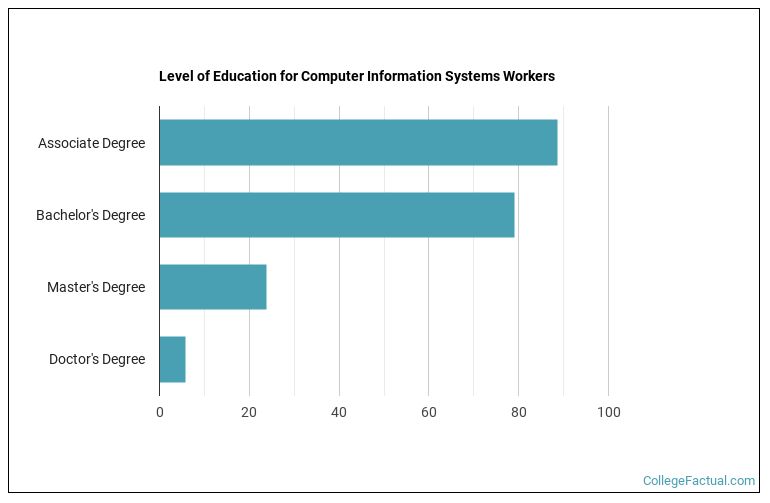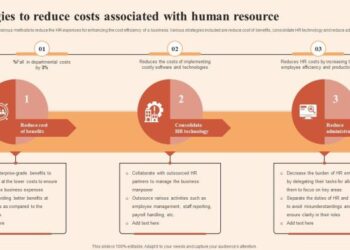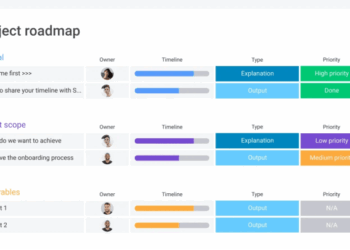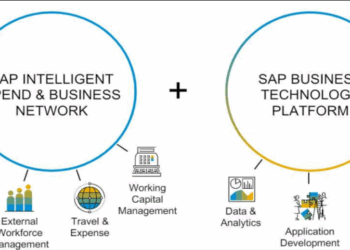Embark on a journey into the realm of computer information systems degree, where the fusion of technology and business opens doors to endless opportunities. This degree program delves deep into the core concepts and skills essential for navigating the digital landscape of today.
As we unravel the intricacies of this field, we discover how students are equipped with the tools to thrive in a world driven by technological innovation and data-driven decision-making.
Overview of Computer Information Systems Degree
A Computer Information Systems degree focuses on the intersection of technology, business, and management, preparing students for careers in analyzing, designing, and implementing information systems to support business operations.
Core Concepts and Skills
- Database Management: Understanding and managing databases to store, retrieve, and manipulate data efficiently.
- Programming: Developing coding skills in languages like Java, Python, or SQL to create software applications and solutions.
- Network Security: Learning about cybersecurity measures to protect data and systems from unauthorized access or attacks.
- Systems Analysis: Analyzing business processes and requirements to design effective information systems solutions.
- Project Management: Developing skills to plan, execute, and oversee IT projects within budget and timeline constraints.
Importance of Computer Information Systems
Computer Information Systems play a crucial role in today's digital world by facilitating efficient communication, data management, and decision-making processes within organizations. Businesses rely on information systems professionals to ensure the smooth operation of their technology infrastructure and to drive innovation and competitive advantage through the use of technology.
Curriculum and Courses
In a Computer Information Systems degree program, students typically take a combination of technical and business-related courses to prepare them for a career in the field.
Technical Courses
- Programming languages such as Java, C++, Python
- Database management and design
- Network security and administration
- Web development and design
- Systems analysis and design
Business-Related Courses
- Management information systems
- Business intelligence and analytics
- Project management
- Information systems strategy
- IT governance and compliance
The curriculum strikes a balance between technical skills and business knowledge to equip students with a well-rounded education. This balance ensures that graduates are not only proficient in programming languages and system management but also understand how to apply these skills in a business context.The combination of technical and business courses prepares students for careers in various industries such as healthcare, finance, retail, and technology.
Graduates can pursue roles such as systems analyst, database administrator, IT consultant, or project manager, depending on their interests and specialization within the field. Overall, the curriculum provides a solid foundation for students to succeed in the dynamic and ever-evolving field of Computer Information Systems.
Career Opportunities
Graduates with a degree in computer information systems have a wide range of career opportunities in the ever-evolving tech industry. These professionals play a crucial role in ensuring the smooth functioning of organizations through the effective use of technology.
IT Consultant
- IT consultants work with clients to advise them on how to use technology to achieve their business goals.
- They analyze the IT infrastructure of organizations and recommend solutions to improve efficiency and effectiveness.
- IT consultants often work on a project basis and need excellent problem-solving and communication skills.
Systems Analyst
- Systems analysts design and implement information systems that help organizations operate more efficiently.
- They analyze user requirements, procedures, and problems to automate or improve existing systems.
- Systems analysts need a strong understanding of both business processes and information technology.
Database Administrator
- Database administrators are responsible for the performance, integrity, and security of databases within an organization.
- They ensure that data is available to users and is backed up regularly to prevent data loss.
- Database administrators need strong technical skills and attention to detail.
The demand for professionals with expertise in computer information systems continues to grow as businesses rely more on technology to drive their operations. Graduates can expect to find job opportunities in various industries, including healthcare, finance, government, and more.
Skills and Competencies
In a computer information systems degree program, students develop a wide range of skills and competencies that are essential for success in the field. These skills not only help students excel academically but also prepare them for real-world applications and job roles.
Key Skills and Competencies
- Problem-Solving: Students learn to analyze complex problems and develop innovative solutions using technology.
- Analytical Thinking: The ability to evaluate information, identify trends, and make data-driven decisions is crucial in computer information systems.
- Communication Skills: Effective communication is essential for collaborating with team members, presenting technical information, and understanding the needs of end-users
.
- Technical Proficiency: Students gain expertise in programming languages, database management, network security, and other technical skills required in the field.
- Project Management: The ability to plan, execute, and oversee projects is vital for implementing IT solutions and meeting organizational goals.
Importance of Skills in Real-World Applications
- Problem-Solving: IT professionals are often tasked with resolving technical issues, optimizing systems, and improving processes to enhance efficiency.
- Analytical Thinking: Analyzing data, identifying patterns, and interpreting results are essential for making informed decisions that drive business growth.
- Communication Skills: IT professionals must communicate complex technical concepts in a clear and concise manner to stakeholders with varying levels of technical expertise.
- Technical Proficiency: Applying technical skills to design, develop, and maintain IT systems is crucial for ensuring the smooth operation of organizational processes.
- Project Management: Managing IT projects effectively involves coordinating resources, setting timelines, and ensuring deliverables meet quality standards.
Internships and Practical Experience
Internships and practical experience play a crucial role in a computer information systems program. They provide students with hands-on learning opportunities that enhance their skills and prepare them for the workforce.
Importance of Internships
Internships allow students to apply theoretical knowledge in a real-world setting, gaining practical skills and experience that cannot be acquired in a classroom alone. This practical experience helps students develop problem-solving abilities, teamwork skills, and industry-specific knowledge.
- Internships provide an opportunity to network with professionals in the field and establish valuable connections for future career opportunities.
- Hands-on experience in internships helps students build a portfolio of work that showcases their abilities to potential employers.
- Internships can lead to job offers upon graduation, as many companies prefer to hire candidates with relevant work experience.
Companies Offering Internships
There are numerous companies and organizations where computer information systems students can secure internships to gain practical experience. Some examples include:
- Big tech companies like Google, Microsoft, and Amazon often offer internship programs for students interested in software development, cybersecurity, or data analysis.
- Financial institutions like JPMorgan Chase, Goldman Sachs, and Bank of America provide internship opportunities in areas such as financial technology and data management.
- Consulting firms like Deloitte, Accenture, and PwC offer internships in IT consulting, business analysis, and project management.
Industry Trends and Technologies
In the rapidly evolving field of computer information systems, staying updated with industry trends and emerging technologies is crucial for students pursuing this degree. By understanding current developments, students can better prepare themselves for the job market and stay ahead of the curve in this dynamic field.
Cloud Computing
Cloud computing has revolutionized the way businesses store, manage, and process data. This technology allows for the scalable and flexible delivery of computing services over the internet, reducing the need for on-premises infrastructure. Companies are increasingly adopting cloud solutions to improve efficiency, reduce costs, and enhance collaboration among teams.
Cybersecurity
With the rise of cyber threats and data breaches, cybersecurity has become a top priority for organizations across industries. As more data is digitized and stored online, the demand for professionals skilled in cybersecurity is on the rise. Students studying computer information systems can benefit from gaining expertise in cybersecurity to help protect valuable information and systems from malicious attacks.
Data Analytics
Data analytics involves the extraction of insights from large sets of data to drive informed decision-making. Businesses are leveraging data analytics to gain a competitive edge, optimize operations, and enhance customer experiences. Students with a strong foundation in data analytics can contribute significantly to organizations by analyzing trends, identifying patterns, and making data-driven recommendations.
Last Word
In conclusion, the computer information systems degree not only paves the way for a fulfilling career but also cultivates a mindset of adaptability and problem-solving. As the digital landscape continues to evolve, those armed with this degree stand at the forefront of innovation and progress.
Detailed FAQs
What are the typical courses included in a computer information systems degree?
Common courses include programming languages, database management, systems analysis, and network security.
What career paths can graduates pursue with a computer information systems degree?
Graduates can explore roles such as IT consultant, systems analyst, cybersecurity specialist, and data analyst.
How important is practical experience through internships for students in this program?
Internships offer hands-on learning opportunities, allowing students to apply their skills in real-world scenarios and build valuable industry connections.








